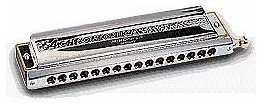Sunday, February 24, 2013
Be Still, My Heart
It was a sunny mid-day during my freshman year in college. I was lugging my books as I walked between classes. I was in pretty good spirits as I recall - no serious stress or anxiety was troubling me. As I walked past the gym, I suddenly felt very strange - like I was finishing a long sprint. I put my hand on my chest and discovered that my heart was beating at about 4 times its normal pace - 4 beats a second!. I sat on a bench, and started to sweat and freak out. After about 30 seconds, my heart stopped racing, settled back into its normal rhythm and I felt fine. "Weird," I thought. By the end of the day, I had forgotten about the experience.
But this was the beginning of a lifelong condition. By the time I reached middle age, the spells of racing heartbeat had become a recurring annoyance. My heart would start banging away, without any warning, and then the episode would spontaneously resolve. It didn't happen when I was exercising. It was completely random. Sometimes, it would kick off while I was in bed asleep. I mentioned it to my doctor, but I never had a spell in the presence of a healthcare provider - until the middle of 2001.
I was at the office and my rapid heartbeat kicked off and wouldn't stop. After about of 30 minutes of sweating and feeling light-headed, I decided to go to the hospital. I drove myself (probably not a good idea, in hindsight). I arrived and walked into the cardiac care department. I told them that my heart was beating really, really fast. The staff nearly gang-tackled me, shoved me into a wheelchair and rolled me at high speeds to the ER. I was shifted to a bed, hooked up with the usual tubes and wires, etc. The resident looked at me, listened to my heart and said "Ah - PSVT. I can fix this easy" They dripped something called adenosine through the IV and my heart down-shifted to a normal pace immediately. I thought "Well, that was easy." But the fast acting/fast dissipating medication went out of my bloodstream and the ticker took off at high speed again. This led to lots of folks freaking out. They gave me a dose of something stronger and that did the trick - my spell was over. I spent several hours in the ER while folks monitored me (Borrring). But I was fine.
PSVT stands for paroxsymal supraventricular tachycardia. "Paroxsymal" means that onset and termination are abrupt and random events. "Supraventricular tachycardia" describes the exciting experience of a 200 BPM pulse. PSVT is basically a short circuit of the heart's electrical system which causes a very rapid heartbeat. It isn't dangerous if the heart is otherwise healthy, but if can be alarming to the sufferer. It is also hard to function when your heart is going lickety-split. I think that if a PSVT episode were to go on for a very long time, the heart muscle could weaken and the heart could fail.
I have learned how to deal with this annoyance. My doctor put me on a light dose of atenolol, a beta blocker that protects the heart and slows stuff down in general. Since I have been on atenolol, my resting pulse hovers between 49-58 BPM. My blood pressure readings are also excellent. This might be partly due to my semi-regular exercise, but the drug definitely is a factor. I also learned how to stop a PSVT episode using a bunch of techniques called vagal maneuvers. Vagal maneuvers include coughing, holding the breath and tensing all the muscles in the abdomen - this stimulates the vagal nerve which can slow your heart rate.
It is possible to fix PSVT via a surgical procedure called ablation - basically a technique that breaks the abnormal electrical channel and ends the possibility of a short circuit. There is some amount of risk associated with this procedure, so I have chosen to live with my oddball heart.
It is quite interesting to have a quirk like this, that can pop up at any time and force me to take a "timeout."
Subscribe to:
Post Comments (Atom)




No comments:
Post a Comment